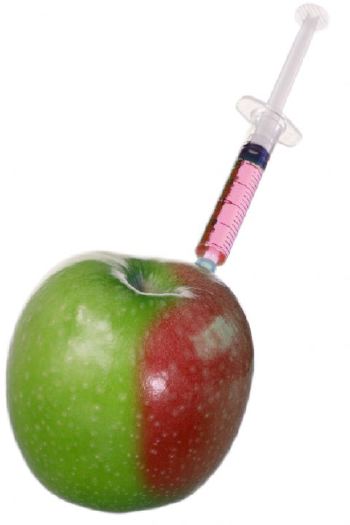
Chemically contaminated, genetically modified foods find their way onto our tables with alarming ease, despite their unknown effects upon our bodies and on the natural ecosystems that have supported us until now. As an increasingly smaller number of corporations comes to control the production of world agriculture, the matter at stake is not only the potential health poisoning we may inflict on ourselves, but the dramatic and often irreversible crisis in which we place the welfare of thousands of farmers around the world.
Unfortunately the testing required before such genetically modified foods are released into the food-chain is totally insufficient, with no conception of the long term effects that might be suffered by both individuals and entire ecosystems. Nevertheless, the agrochemical corporations persist in mixing the genes of fireflies and moths with our potatoes and corn, and those of ocean fish with our strawberries and tomatoes.
Genetically modified foods are defined by wikipedia as:
''...produced from genetically modified organisms (GMO) which have had their genome altered through genetic engineering techniques. The general principle of producing a GMO is to insert DNA that has been taken from another organism and modified in the laboratory into an organism's genome to produce both new and useful traits or phenotypes. ''
But often these unnatural hybrids are not designed to create more and plentiful supplies of food, but rather to tighten the control that a shrinking number of agrochemical companies have over its production process. The creators of pesticides, for instance, create pesticide-resistant GM crops, patent the seeds, and then exert tight control over the use of both by farmers. Where for centuries farmers could save and develop seeds, they are now faced with proprietary crops that they must license on a yearly basis, becoming effectively slaves to the seed sources for their survival.
Source: http://www.masternewmedia.org/news/2007/03/17/the_new_science_of_food.htm
 There is a multitude of concerns about the impact of GM crops on the environment.
There is a multitude of concerns about the impact of GM crops on the environment.
